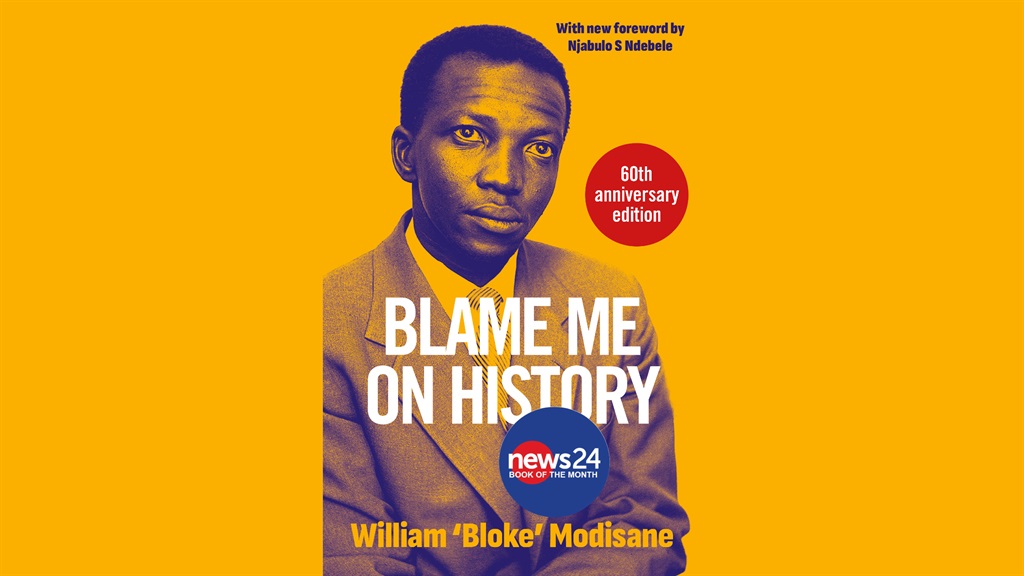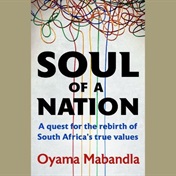
- 'Blame Me on History', initially published in 1963, documents William "Bloke" Modisane's life under legislated apartheid, revealing the poignant reality of being a black man with dreams that were shuttered by a system of oppression.
- Modisane conjures a personal and private history that has found its relevance across generations and in different sectors of society.
- Modisane would have turned 100 in 2023, and his book is 60 years old now.
As a millennial, writing about William "Bloke" Modisane's work is strange and exhilarating at the same time. After reading his seminal autobiographical text, Blame Me on History, and some of his creative work, I was reminded of Michael Chapman's profound statement in his essay More than Telling a Story: Drum and its Significance in Black South African Writing, where he asserts that the Drum writers of the 1950s "were concerned with more than writing a story".
This is particularly relevant to Modisane's works. He was a Drum writer, but Blame Me on History isn't "concerned about the story" of his life alone. Instead, as Njabulo Ndebele puts it, "Modisane's book is concerned with expos[ing] our raw past, private and public in their nature, which is still present in many forms as unacknowledged antecedent."
Blame Me on History, initially published in 1963, documents Modisane's life under legislated apartheid, revealing the poignant reality of being a black man with dreams that were shuttered by a system of oppression. In the book, he imagines life as something closer to death. The opening of the book asserts: "Something in me died, a piece of me died, with the dying of Sophiatown."
Thus, Modisane conjures a personal and private history that has found its relevance across generations and in different sectors of society.
As a contributor to a symposium the Johannesburg Institute for Advanced Study (JIAS) hosted in April 2023 to commemorate the 60th anniversary of the publication of Blame Me on History, I had the opportunity to reflect on how Modisane shares the life story of growing up in Sophiatown, a residential area in Johannesburg that was demolished by the apartheid government in 1955 because it was multiracial and thus violated the Group Areas Act of 1950. Modisane lived there most of his life until he left for England in 1959.
An example that reflects his experience of racial inequality is when he talks about the racial disparities that were acknowledged by his former employer, which ultimately made him resign from Drum.
He says: "The quarrel with Hank Margolis closed the ring; I did not have to resign my job; I could have swallowed my pride and allowed the assistant editor the privilege of being white."
He added:
"But apparently, this had not been brought to the attention of the assistant editor."
This is one of many times he felt "disappointed" by how the law failed to recognise his humanity.
Modisane's legacy is reflected in works by the current generation of writers and scholars, such as Siphiwo Mahala and Siyabonga Njica. In 2021, Mahala wrote a play about the relationship between Modisane and American literary giant Langston Hughes, whose experiences were shared in the exchange of letters. Through their "bromance", Mahala shows the artistic influences shared between African American and South African cultures, in particular, the Harlem Renaissance and the Drum decade of Sophiatown. Njica, on the other hand, recently completed a doctoral thesis at Cambridge with a particular focus on the life and times of Modisane, tracing his long impactful trajectory in the arts, including his work in theatre, film and radio. It shows how Modisane's life and works opened doors for black writers and public intellectuals in general.
Modisane would have turned 100 in 2023, and his book is 60 years old now. JIAS assisted with the republication of Blame Me on History to ensure that it's accessible to future generations. Many elements of the book are still relevant today and will remain relevant for future generations. It explores the attempt to deconstruct a colonial subject through self-consciousness as Modisane tells his story from a point of self-awareness about an oppressive state to which he and other black people are victims.
READ | EXCERPT: News24's Book of the Month for February is Bloke Modisane's SA classic, Blame Me on History
Self-erasure as a mode of resistance is another critical element. On several occasions, he declares his social death and state of dehumanisation. He writes about an error on his father's coffin, saying how "my name and not my father's on the coffin confused and frightened me, but it seemed symbolic somehow; I was officially dead".
In Chapter 12, he recalls a childhood memory of primary school, with pupils assembled in a church hall, when already he could not accept the "scriptures of the Christendom" because "[t]he harbingers of the [Christian] faith revealed to [him] that 'man was made in the image of God', [who] then proceeded to dehumanise [him]... [T]hey taught [him] to repeat the Ten Commandments, with particular emphasis on 'love thy neighbour as thyself', but in practice, they showered denunciations on [him, defined [him] as a savage and classed [him] among the beasts".
Modisane's works today provoke young literary enthusiasts, scholars and researchers to read more about South African writers and the history of South African writing. Modisane's life up to 1959, as documented in Blame Me on History, shows the need for research on autobiographies to understand the reality of our past better.
Going back to Chapman and Ndebele's statements, Modisane's writing isn't concerned only with telling the story; instead, it is concerned with "expos[ing] our raw past […] which is present in many forms". This is a past that the present can learn from and one that is essential for future generations.
Bafana Radebe is a PhD student at the University of Johannesburg.




 Publications
Publications
 Partners
Partners












